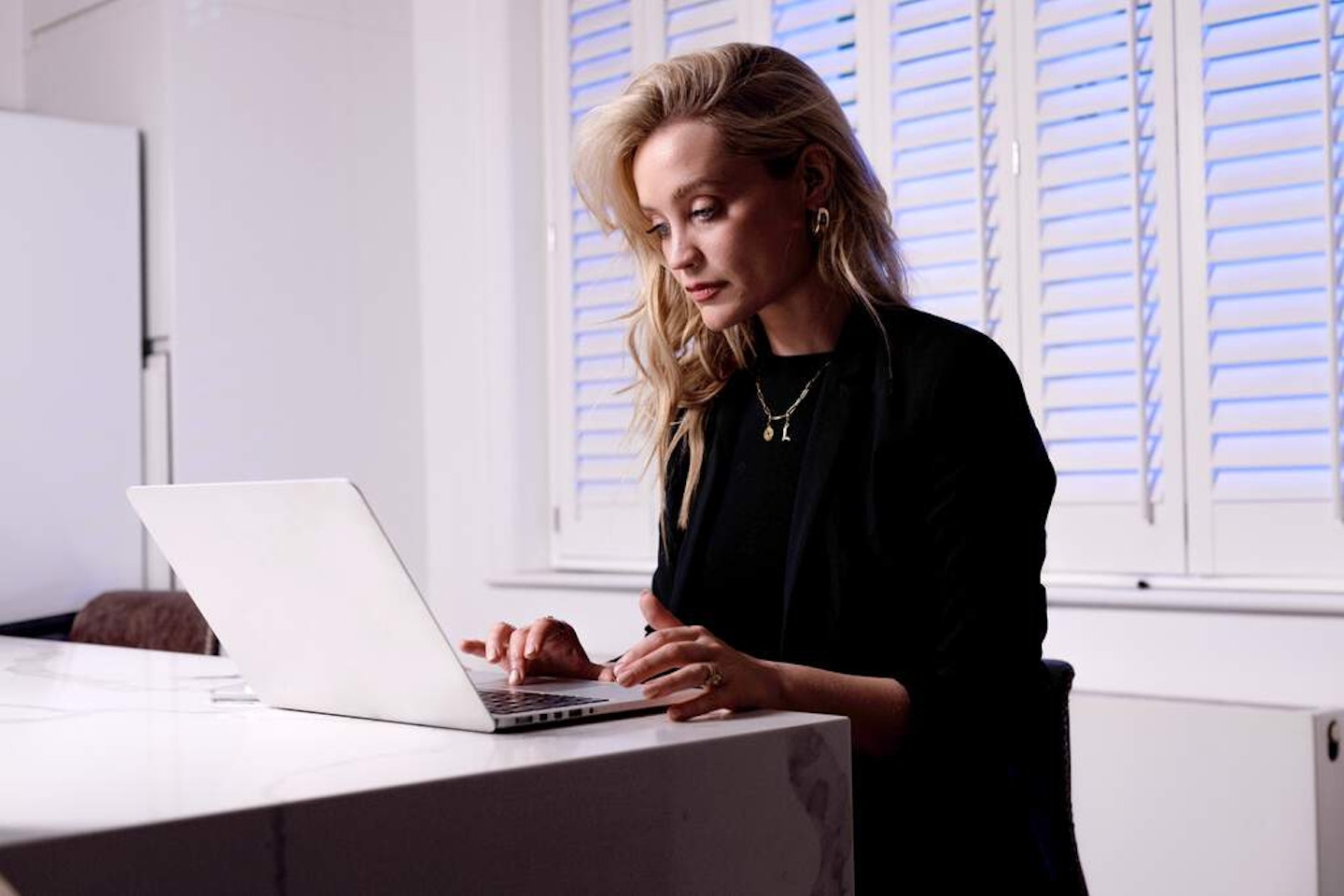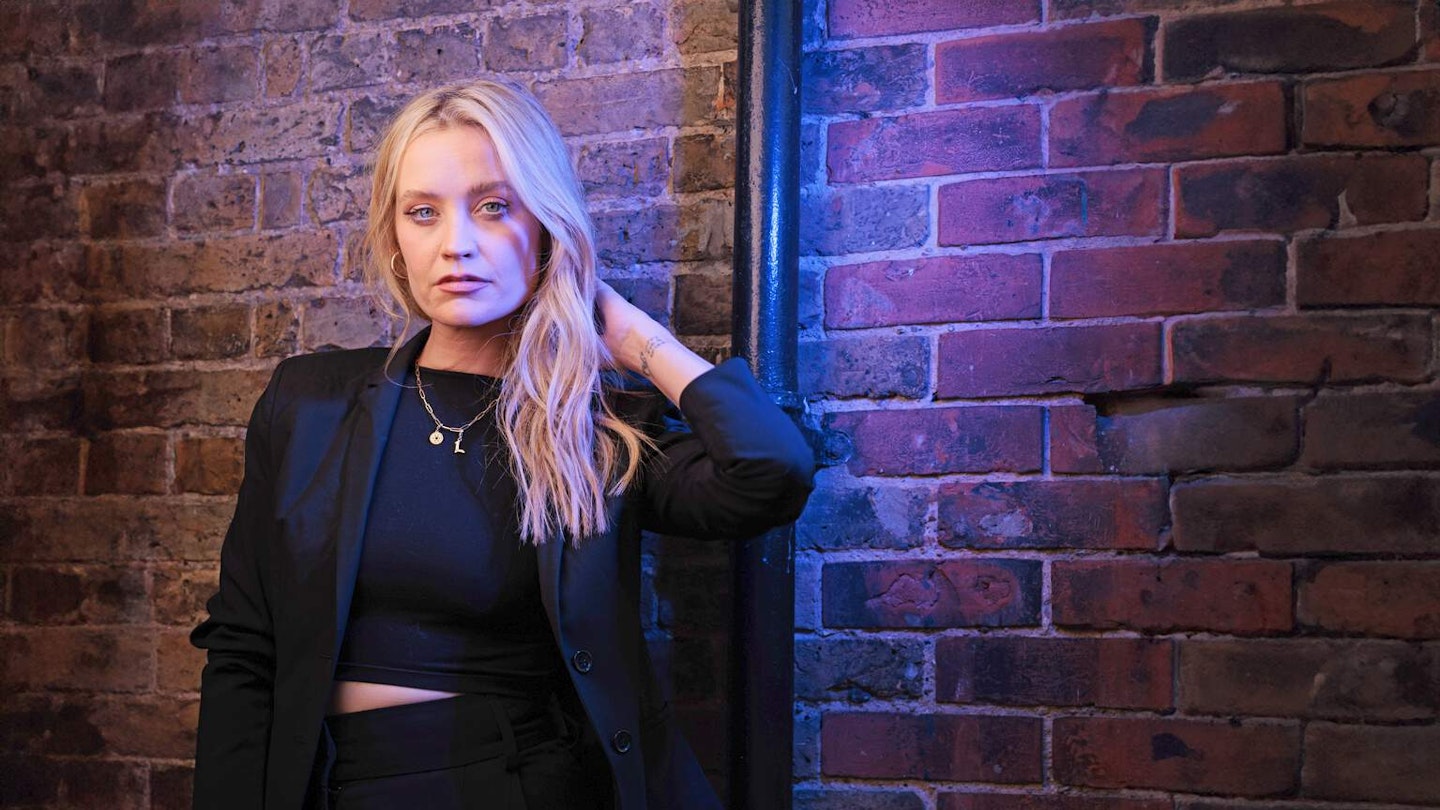Laura Whitmore has officially moved on from love. Not in her personal life: the 38-year-old is still very much married to fellow TV presenter Iain Stirling, with whom she welcomed a daughter in 2021. No, she’s moved on from Love Island, the reality dating show on which the couple shared hosting duties for three seasons, until Maya Jama took over from Whitmore this year. Her new venture is very different: a series of hard-hitting documentaries on cyberstalking, incels (involuntary celibates) and the normalisation of rough sex.
‘Nothing I’ve filmed was ever as traumatising as the first series of Love Island [2020], because the whole situation was not one I ever wanted to be in,’ Laura Whitmore recalls of stepping in for her friend, TV presenter Caroline Flack, who had been arrested. ‘I was covering for a friend and there was a court case going on, press everywhere, it was very noisy. At the same time, I’m trying to make this glitzy show that’s meant to be fun and uplifting.’ A few months later, Flack died by suicide. ‘Then the worst thing that can possibly happen happened. So, you’re trying to finish it off but you’re in survival mode in many ways. You’re trying to do your job respectfully, the way you’re supposed to and not question it too much.’
The next season Whitmore filmed, in June 2021, the UK was in lockdown. ‘Every week, I would fly to Spain then come back and isolate for three days before I could do Aftersun on Sunday,’ Laura says. ‘And I had people going, “God, she’s got the easiest job in the world!” and I’d be like, “Are you serious? Do you know how many hours I’ve spent in isolation for this?”’
For her new ITV documentaries, then, Whitmore enjoyed having more control over what will be seen on screen – as both investigating host and associate producer. ‘I’m much more authentically me in these, as opposed to a scripted TV show,’ she explains. ‘There’s probably more reality in the documentary!’
The choice of topics – all around women’s safety and misogyny online – is certainly timely. When we speak, the second episode of The Idol has just aired, and online discourse is rife about the normalisation of rough sex in popular culture. At the same time, the misogynist Andrew Tate, who is often accused of emboldening incels by posting sexist content online, has just been charged with rape, human trafficking and forming an organised crime group to sexually exploit women (he denies all charges). To top it off, Grazia has just launched a new campaign to end cyberstalking.
It’s a depressing reality that so many of the ways women’s lives are endangered is topical, but it’s true – and Whitmore knows it all too well. She’s been sent threatening messages online and has routinely been cyberstalked and sexually harassed.
‘I’ve had so many experiences in 15 years of TV where things have been inappropriate but, at the time, I didn’t say anything,’ she says. ‘I used to have photographers take pictures up my skirt and they’d be printed in the newspapers. This was back in the noughties when they did it all the time. I remember being mortified and telling someone older in the industry who I really respected, and she said, “Oh don’t worry, it happens to everyone,”’ so I was like, “Oh, that’s OK then.” It was so normalised, only now am I like, “Oh no, that’s not OK.”’

The same goes for when she was cyberstalked a decade ago, which she reported to police at the time but was dismissed, and thus has been hesitant about reporting cyber offences ever since. ‘People are just like, “You’re on telly now, this is what happens, you’re lucky you’ve made it,”’ she explains. ‘There are still things that have happened to me that I haven’t dealt with yet. Sometimes, you’re in a situation where you’re scared you’ll piss someone off, or be seen as difficult, so you go along with things and then later you’re like, “I should’ve questioned that more.” But you live and learn, that’s the whole thing that I’ve taken from filming these.’
It was the incel documentary Laura pitched to ITV first, a gripping 60-minute episode where she interviews self-confessed involuntary celibates with an all-female crew (and one male security guard for safety). Was she scared going into filming it?
‘The incel documentary was the one I was most worried about doing initially because I know I’ll get loads of shit online,’ she says. ‘Other women who have infiltrated these groups before have received death threats, but I just thought you can’t not do something in life because of that. And I was trying to not go into it attacking men because you see in the documentary, there’s one guy Sam and one called Jake and both of their videos [that they post on incel forums] are really similar, but one has gone on to kill loads of people and one had come out the other side and helped himself, so how do you tell the difference? I try to not go in there attacking, but I was apprehensive – even my husband was like “Ooh, are you sure about this?”’
I know I'll get loads of shit online after the incel documentary airs.
What she did learn from filming it though is that many of the men who fall into the incel community had experienced neglect in childhood or bullying, which makes you wonder if we need a more nuanced approach to prevent young men falling into incel communities (and ultimately causing harm to women) by looking at how children are treated in the home.
‘When I met a lot of the guys, I felt sorry for them because a lot of them were lonely and being radicalised online,’ Laura says. ‘All they really wanted was community, which we all want in some way, and it just happens that they’re falling into one that’s dangerous. Somehow these men have slipped through [the cracks], and when I interviewed [one incel named] Darkcel, he talked about abuse in childhood and domestic abuse his mother faced. I would never condone any of the things he says, the important thing is realising that it’s not about “You’re a bad person, so I’m not dealing with you in society” it’s about how we stop these things happening. We need to go back and look at what happened to these men at a young age, how that happened and what was allowed, and encouraging therapy for them in later life.’
With the documentaries sure to make an impact, Laura hopes to continue tackling the subjects that can make a difference to women’s lives. ‘I’m really lucky to have this platform so if I can do something more impactful, I will,’ she says. But don’t think that rules out a return to reality shows. ‘I also think you need to have lightness. I could never give up on my guilty pleasure TV.’ ‘
Laura Whitmore Investigates’ is out on ITVX now
Images by George Gottlieb
